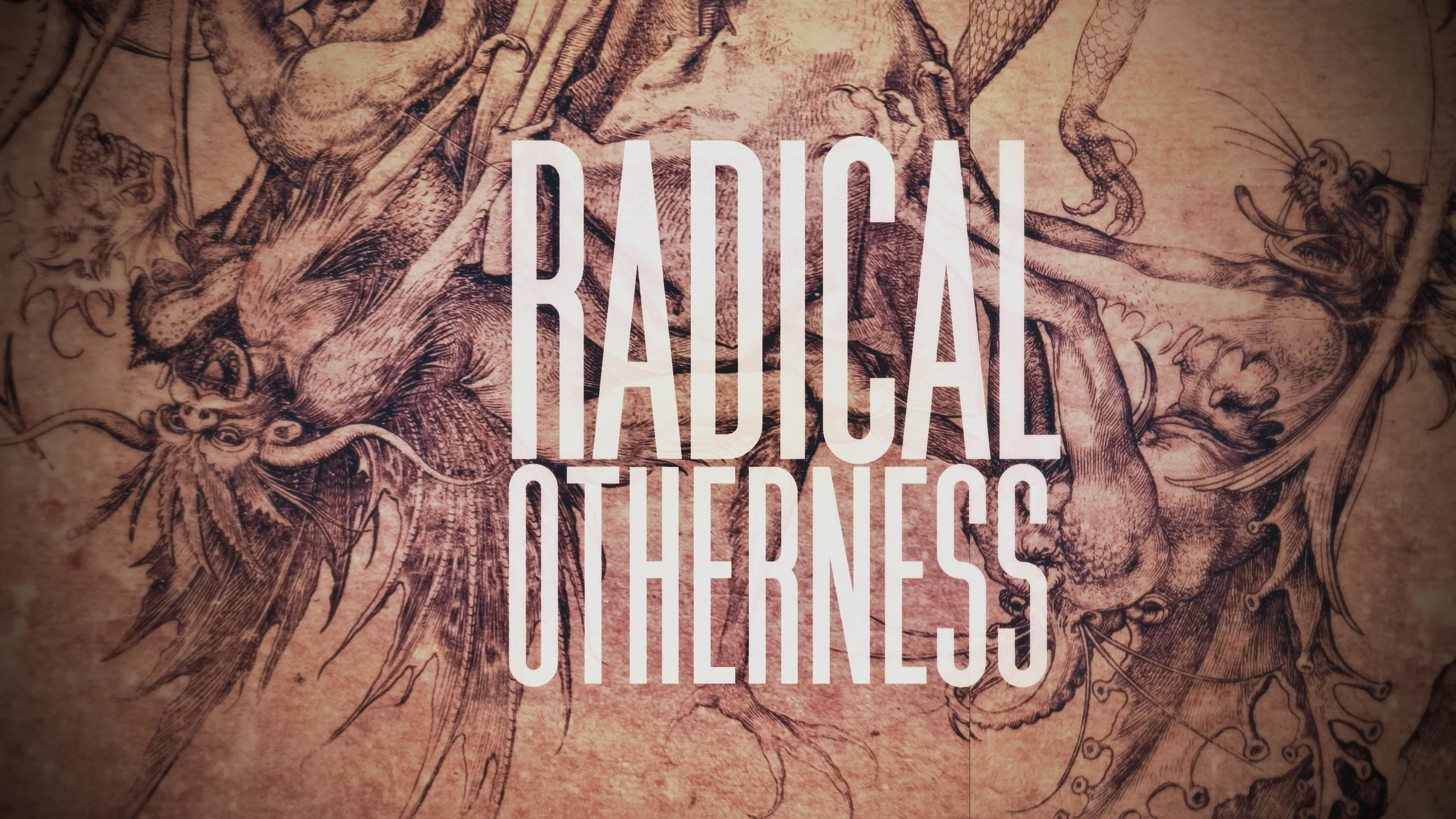When Among Daemons
A brief definition of Radical Otherness.
Since the publication of INGENIUM in 2022, the term Radical Otherness has become central to how I describe and teach goêteia. Because both “radical” and “otherness” carry dense associations that can easily shift the meaning I intend, I want to briefly clarify what I mean by this term before exploring it further.
When I open the front door to greet the postman, I am greeted back by otherness. When I try to understand my cat’s behavior, I am deep in otherness. Even when I look out the window, and wonder about the weather, I am in otherness. All of this marks territory that lies beyond the familiar. All of this marks territory that, if we remain present long enough in it, will unmask itself as deeply uncanny, alien and hard to genuinely relate to, without projecting our own shit onto that which is actually, well, other.
However, in the encounter of postman, cat and weather, I still can find plenty of bridges to travel over, in order to reduce the relational distance between us. These personas have roamed among the human camp fire of the ecumene for millennia, we have assimilated their presence — of other human beings, of domesticated animals, and of the forces of nature — to a degree that it seems possible to achieve a state of relative familiarity with them.
Radical Otherness, a term I like to use in capital letters to signify its specific meaning, is what we experience when we stride out into the anticumene. I.e. the terra incognita that historically has not been settled, civilized or plainly understood by humans. It’s the difference between the postman at my door and a member of the Wild Hunt, between my cat on the sofa and aeon-old non-human being dwelling deep under a river, between the clouds above my house as a visual or chemical object, and the vast, non-human consciousness of the wind of which they are a momentary visual imprint.
Radical Otherness then is the realm that describes 99.9% of the cosmos beyond our little campfire of the ecumene. And it is in this outside territory where I rely on the stance, tools and techniques of goêteia to slowly establish micro-cultures with beings that could not be more remote and alien to our own ways of being. Goêteia describes the art of bridge building into Radical Otherness: the uncommon attempt to establish some sort of faint relationality — without colonizing or even fully comprehending — the vast hive of non-human partners on the other side.
I use the expression radical here in two distinct senses: first, to describe the extreme distance between ourselves — the human sphere — and that of the spirits. This means that our cultural bridge must be extraordinarily far-reaching and elastic in order to span such distance and enable even distant relationality. Second, I employ the word in light of its original etymological meaning, namely “pertaining to the root.” For the goêtic otherness of which I speak inevitably brings us back to the roots of our own species — in the land, in creation, and in the speaking, living multiplicity from which we arise.
Thus, the mundane, socio-political use of the Other and of Othering can easily lead to misunderstanding. The latter seeks to expose and denounce a state of exclusion; whereas the term Goêtic Radical Otherness carries no such judgment at all.
One final implicit connection deserves to be brought into the foreground: to reorient ourselves within a world of Goêtic Radical Otherness, we must first relinquish one thing above all — the reflex to rely on our mirror neurons. These neural networks, which allow us to experience at a distance the pain, suffering, and joy of another human being, become treacherous stumbling blocks in goêtic territory. For while mirror neurons are invaluable within the everyday realm of the human ecumene, in the anticumene they betray us. When we come into contact with species utterly alien to our own, nothing obstructs understanding more than the assumption that they feel, think, love, or live in any approximation of the way we do.
Thus the notion of Goêtic Radical Otherness stresses precisely that which must not be erased or diminished through mirror neurons — or through any other human mechanism of leveling the experience of primal and unmediated alienness. On the contrary: in the goêtic context, Radical Otherness is both good and proper; it requires no empathy, no smoothing over, no domestication. It is a fundamental principle of creation itself that we are so radically distinct from one another that there is no automatic path to empathizing. Instead, all that remains to us is patience and curiosity, caution and approach, as well as the willingness to recognize all human rules and agreements as precisely that: of one species alone, and of little gravity in the inter-species realm of the vast anticumene.
“When amongst Romans, do as the Romans,” the proverb goes. Yet this is no wise counsel for communion with spirits. Pretending we were them is as misguided as projecting ourselves upon them. What remains is austere but precious: When amongst daemons, honor the way of the daemon.
So, if my choice of words sparks an instinctual objection, I invite you to replace them. Primal Elsehood, Inchoate Foreignness, Numinous Beyondness, or even Chthonic Alterity would all serve equally well. For now, however, I prefer the much plainer term Radical Otherness, as it avoids the danger of getting lost in overly polished verbosity. At the end of the day, I want my texts to be direct and clear, accessible to anyone. And I acknowledge — with a faint crease in my brow — that any occult terminology can only trace an approximate orbit of travel, rather than offer a fixed destination of arrival.

